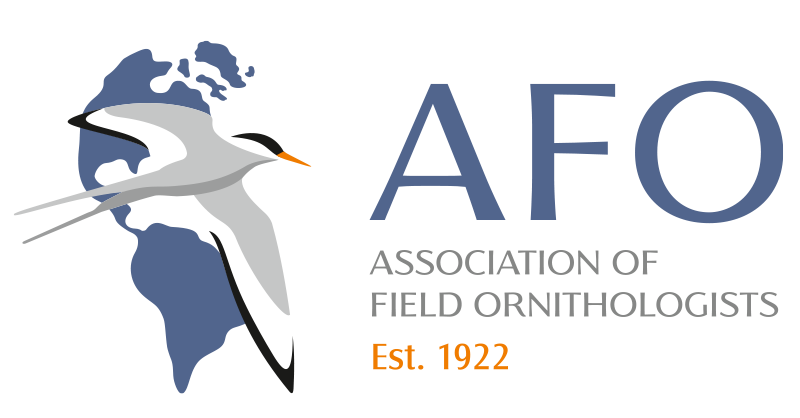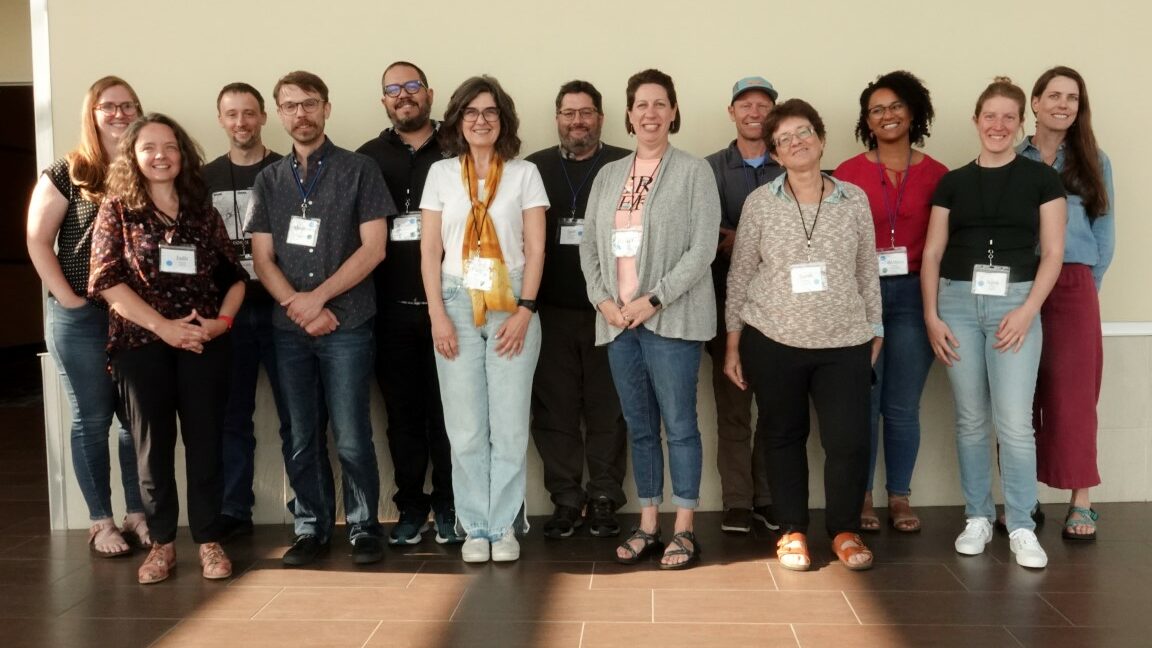The AFO’s Council consist of both avocational and professional ornithologists, in recognition of the contributions that both make to ornithology. If you are interested in assisting with the governance of AFO, or if you would like to nominate a candidate for the AFO council, email the nominations committee.
Officers

Matthew Shumar
Program Coordinator, Ohio Bird Conservation Initiative
The Ohio State University
School of Environment and Natural Resources
Columbus, OH 43210
Matthew is based in the School of Environment and Natural Resources at The Ohio State University where he is Program Coordinator for the Ohio Bird Conservation Initiative (OBCI). Prior to working with OBCI, he was the Project Coordinator and co-editor for The Second Atlas of Breeding Birds in Ohio. Matthew’s research interests include landscape ecology, and in particular anthropogenic effects on Neotropical migrants. He is also interested in engaging the public into community science efforts and exploring new opportunities for collaborative efforts between academia, agency professionals, and avocational ecologists.
B.S. (Wildlife & Fisheries Science / Forest Science) – Pennsylvania State University
M.S. (Wildlife & Fisheries Resources) – West Virginia University

Rebecka Brasso
Department of Zoology
Weber State University
Tracy Hall Science Center Rm 309
T1415 Edvalson St., Dept. 2505
Ogden, UT 84408-2505
Dr. Brasso is an Associate Professor of urban ecology in the Zoology Department at Weber State University. Her research primarily involves using songbirds as biomonitors of heavy metal contamination across terrestrial, aquatic, and marine food webs. She is particularly interested in the variation in local environmental conditions and food web interactions that drive the risk of exposure to harmful concentrations of metals. Her master’s research used Tree Swallows as biomonitors of mercury (Hg) availability along the contaminated South River, VA, while her PhD research used Pygoscelis penguins as biomonitors of Hg in the Antarctic marine food web. During her time as an assistant professor at Southeast Missouri State University she completed a multi-year project investigating the effects of legacy lead (Pb) contamination on breeding songbirds in the Southeast Missouri Mining District. Now in Ogden, Utah, Dr. Brasso continues to use songbirds, and more recently spiders, to track local and regional-scale variation in Hg exposure in wetland ecosystems.
B.S. (Marine Biology) University of North Carolina Wilmington
M.S. (Biology) The College of William and Mary
Ph.D. (Marine Biology) University of North Carolina Wilmington

L. Scott Johnson
Professor Emeritus
Towson University
35 Yellow Sky Way
Sedona, AZ 86336
Scott has recently retired from a full-time position at Towson University where he taught ornithology and animal behavior. He is a past president of the AFO and currently also serves as one of AFO’s investment trustees. He continues to conduct research on passerine reproductive biology and behavior. He is also active in the Cornell Lab of Ornithology’s Birds of the World project.
B.S. (Biology) St. Olaf College, Northfield MN
M.S. (Zoology) Northern Arizona University, Flagstaff
Ph.D. (Ecology) University of Calgary, Alberta

Sarah Sargent
Erie Bird Observatory
301 Peninsula Drive, Suite 14
Erie, PA 16505
Sarah Sargent spent over 10 years with Audubon Pennsylvania (a state office of National Audubon Society) developing and implementing bird conservation programs primarily in northwestern Pennsylvania. She runs a banding station at Presque Isle State Park, on the southern shore of Lake Erie, and has partnered with the park and others to help return the extirpated Great Lakes Piping Plover to this site. Her work included overseeing and revising the Important Bird Area program in Pennsylvania and developing materials for forest landowners on the habitat needs of forest breeding birds. She has previously conducted research on frugivory and seed dispersal by birds in South Carolina and Costa Rica.
B.S. (Biology) Swathmore College
M.S. (Ecology and Evolutionary Biology) Cornell University
Ph.D. (Ecology and Evolutionary Biology) Cornell University

Dan Ardia
Professor of Biology, Department Chair of Biology
Franklin & Marshall College
Department of Biology
PO Box 3003
Lancaster, PA 17604
Dr. Ardia’s research is focused on evolution of life histories in birds, particularly at the interface of physiology and behavior. He is especially interested in the how environmental conditions drive life history tradeoffs. A recently funded NSF award will allow investigation of how tree swallows cope with stress and environmental harshness across North America. In addition, he is studying how house sparrows adjust physiologically to novel environments using multiple invasions in Senegal and Kenya. He also has long-standing interest in the causes and consequences of variation in egg temperature and incubation behavior.
Ardia’s teaching includes Evolution, Conservation Biology, Behavioral Ecology, and Tropical Field Biology. Deeply committed to a liberal arts education, Ardia incorporates multiple undergraduates in his research and helps guide students to graduate programs in organismal biology. He serves as an Associate Editor of the Journal of Animal Ecology and the Journal of Field Ornithology. Service in his local community includes serving on the board of the North Museum of Nature and Science, Millport Conservancy, and the PA Master Naturalist.
B.S. (Biology/Environmental Studies/Political Science) Tufts University
M.S. (Environmental and Forest Biology) SUNY-College of Environmental Science and Forestry
Ph.D. (Ecology and Evolutionary Biology) Cornell University

Julie Jedlicka
Associate Professor of Biology
Missouri Western State University
4525 Downs Drive
St. Joseph, MO 64507
Julie is an Associate Professor of Biology at Missouri Western State University where she teaches ornithology and animal behavior. On campus she is active in the banding lab and is establishing an extensive network of nest boxes to research avian reproduction and behavior with talented undergraduates. In the lab she has developed molecular scatology techniques that uncover the arthropod diets of insectivorous birds, helping to connect ecosystem services to avian foraging.
B.S. (Resource and Ecology Management) University of Michigan, Ann Arbor
M.S. (Ecology and Evolutionary Biology) University of Michigan, Ann Arbor
Ph.D. (Environmental Studies) University of California, Santa Cruz

Mark Hauber
Harley Jones Van Cleave Professor of Host-Parasite Interactions,
Department of Evolution, Ecology, and Behavior,
School of Integrative Biology,
University of Illinois, Urbana-Champaign
Dr. Hauber’ lab in the Department of Evolution, Ecology, and Behavior at the School of Integrative Biology of the University of Illinois, Urbana-Champaign, focuses on the evolution of recognition systems. Shifting gears between behavioral, developmental, physiological, and molecular tools, his lab studies the social and genetic consequences of species recognition in avian brood parasites, such as cuckoos, cowbirds, and whydahs, and their hosts. Obligate brood parasitism in birds provides an exciting model system for the evolution of social behaviors because, unlike 99% of bird species, they lay their eggs into nests of other species and are reared by foster parents. Several other projects in the lab tap into national and international collaborations throughout the world of birds, including the unique and often endangered sea- and shorebird fauna of New Zealand, as well as mammals, spiders, and other organisms from around the globe.
B.S. (Organismal Biology/Biology) summa cum laude, Yale University
Ph.D. (Neurobiology and Behavior) Cornell University
D.Sc. (Biological Sciences) University of Auckland
M.Sc. (Psychology with distinction) Victoria University of Wellington
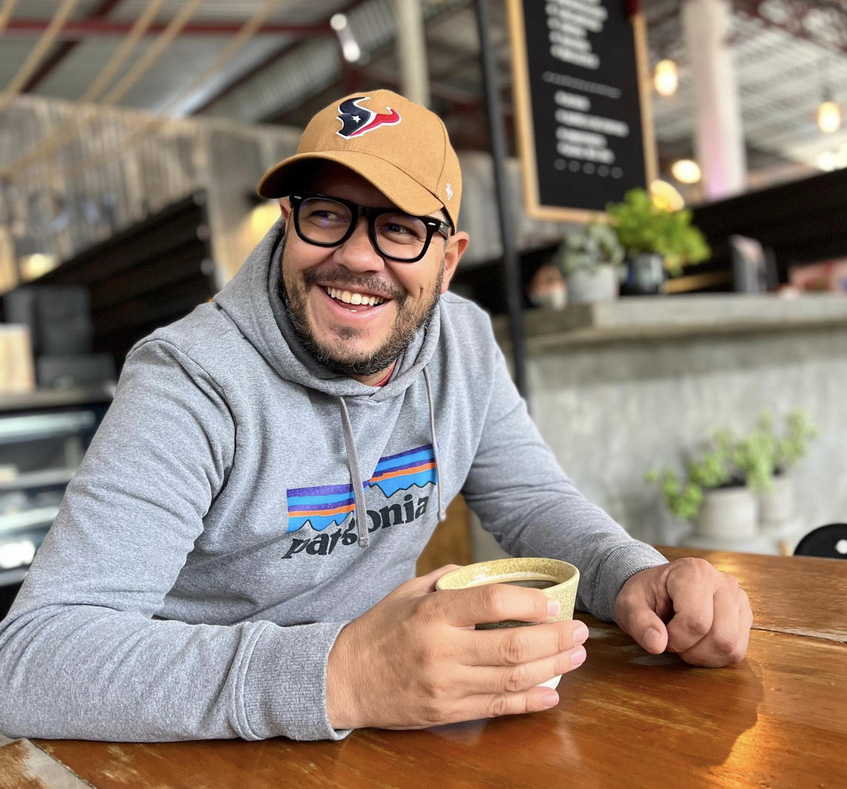
Rafael Rueda-Hernández
Assistant to the Science Communication, Outreach and DEI Program Manager
Klamath Bird Observatory
Dr. Rueda Hernández recently worked as Outreach Manager at Klamath Bird Observatory and Senior Research Fellow at the Center for Tropical Research at UCLA. He received his PhD in Biological Sciences, cum laude from Universidad Nacional Autónoma de México. He has diverse research interests, spanning the evolutionary aspects of molt to the migratory connectivity of Nearctic-Neotropical migratory species.
B.S. (Conservation Biology) Universidad Veracruzana
M.S. (Conservation Biology) Universidad Veracruzana
Ph.D. (Biological Sciences) cum laude, Universidad Nacional Autónoma de México
Council
Class of 2025
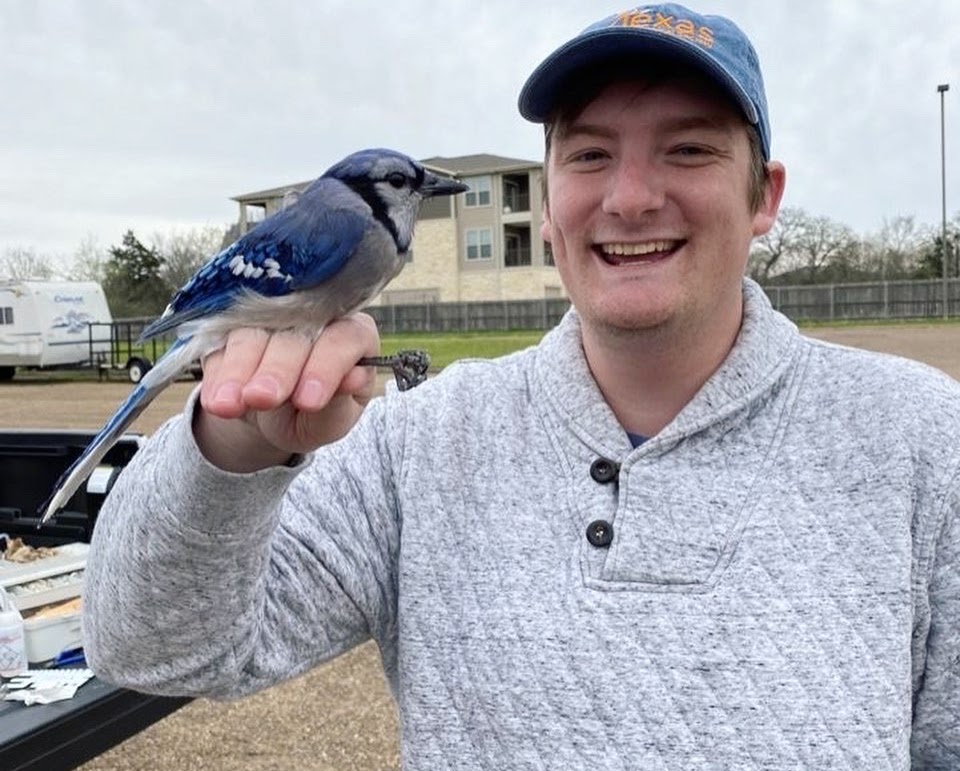
Keith Andringa
PhD Candidate
Texas A&M University
Department of Ecology and Conservation Biology
Keith is a PhD candidate in the Grace Lab at Texas A&M University. His dissertation investigates microplastic consumption in marshbirds and songbirds, and includes determination of best methods for quantifying ingested microplastics, comparisons of ingestion rates across species, and implications of microplastics and mercury contamination for avian health.
B.S. (Wildlife and Fisheries Science) – Texas A&M University
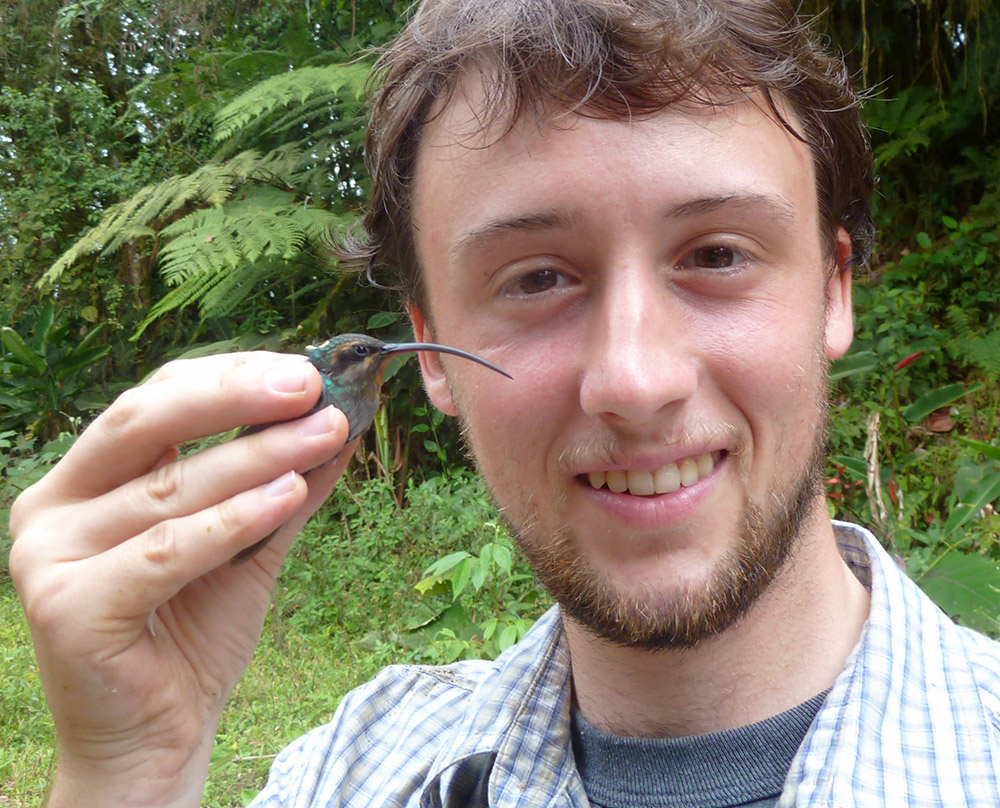
Evan Jackson
Raptor specialist
Maine Dept. of Inland Fisheries and Wildlife and
Adjunct faculty
Division of Natural Sciences
University of Maine at Farmington
Evan works with the Maine Department of Inland Fisheries and Wildlife, primarily with raptors. He is also adjunct faculty at the University of Maine at Farmington, where he teaches a variety of biology and ecology courses, including Avian Ecology, Introduction to Ecology, and Climate Change in New England.
Currently his research involves assessing the status of state endangered Golden Eagles in Maine and ongoing monitoring and assessment of Peregrine Falcons in the state. He also has been involved with the second Breeding Bird Atlas of Maine. Past research has included the effects of habitat fragmentation on several species of Central American hummingbirds and community response to climate change under differing forest management.
B.S. (Biology: Ecology, Evolution and Behavior) – University of New Hampshire
M.S. (Forest Ecosystems and Society) – Oregon State University

Gustavo Londoño
Departamento de Ciencias Biológicas
Universidad Icesi
Cali – Colombia
Dr. Londoño is an Associate Professor of Ecological Physiology and Animal Behavior in the Biology Department at Icesi University, Cali-Colombia. His research primarily involves birds as model organism to understand the factors that limits animal’s elevational distribution in the Andean mountains. He is particularly interested in the relative importance of biotic (e.g., predation, parasitism) and abiotic (e.g., temperature, rainfall) shaping species limits and life history strategies throughout the mountain ranges. His master’s research used Northern Mockingbird to understand the relative importance of food availability and heat on incubation behavior and embryonic development. His PhD explored how temperature and nest predation affected the life history strategies of nesting birds along a 2600m elevational gradient in Southwestern Peru. For his Postdoctoral research at University of California-Riverside he evaluated the effect of temperature and oxygen partial pressure on avian metabolic rate. During his time as an Associate Professor at Icesi Univeristy, he established a long-term bird mark recapture project on a 1500m elevational gradient and two additional sites. Simultaneously, he is conducting physiological, ecological and behavioral projects on invertebrates and vertebrates with the aim to understand the biotic and abiotic factors that constraint their elevational distribution.
B.S. (Biology) University of los Andes, Bogota-Colombia
M.S. (Zoology) University of Florida
Ph.D. (Zoology) University of Florida
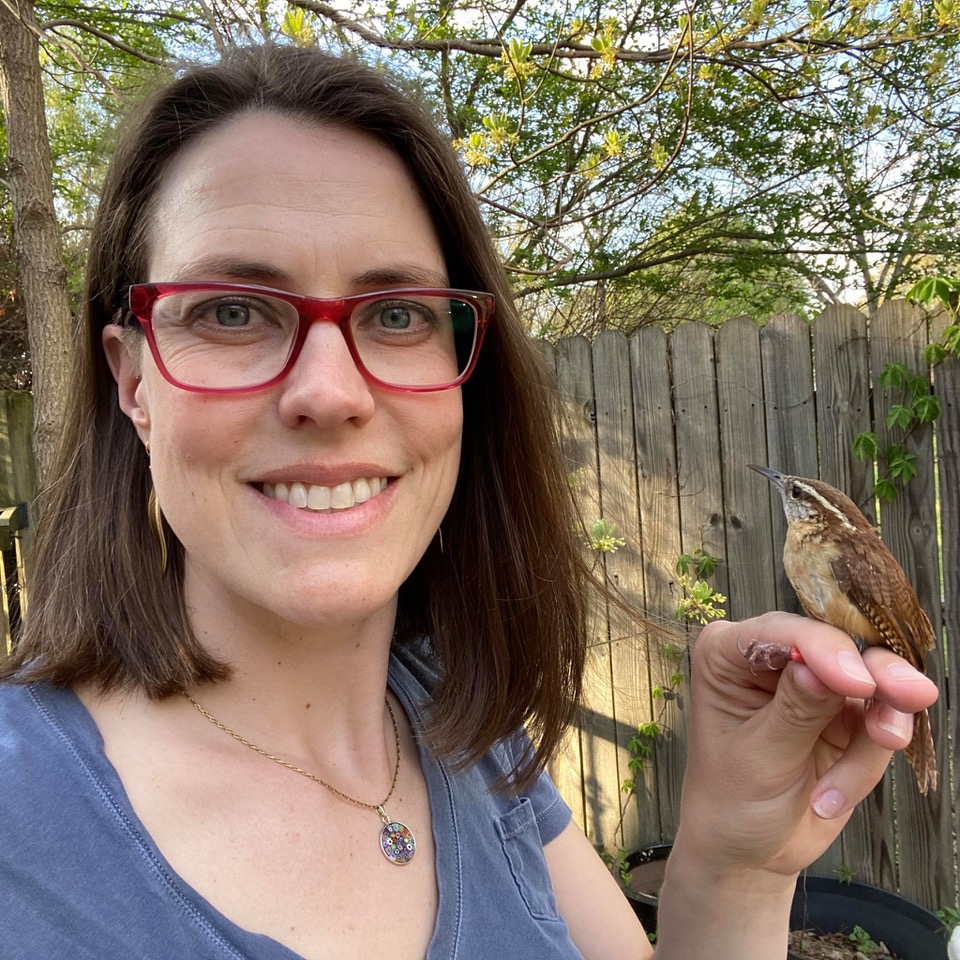
Maureen McClung
Associate Professor of Biology, Chair of Environmental Studies
Department of Biology & Health Sciences
Hendrix College
1600 Washington Avenue
Conway, AR 72032
Maureen McClung is an Associate Professor of Biology at Hendrix College where she teaches courses in ecology, animal behavior, and conservation. Her research focuses on how wildlife communities respond to human disturbance, including land development, noise pollution, and ecological restoration. Supporting undergraduates as they explore field biology is at the center of her research and collaborations with partners such as National Audubon Society, Arkansas Game and Fish Commission, and Arkansas Natural Heritage Commission. She has been running a MAPS banding station since summer 2020 and works to expand banding opportunities for students and conservation professionals in central Arkansas where these opportunities are uncommon.
B.A. (Biology) Hendrix College, Conway, Arkansas
Pg.Dip.Sci. (Ecology) University of Otago, Dunedin, New Zealand
M.S. (Biology) University of North Carolina, Chapel Hill
Ph.D. (Biology) University of Arkansas, Fayetteville
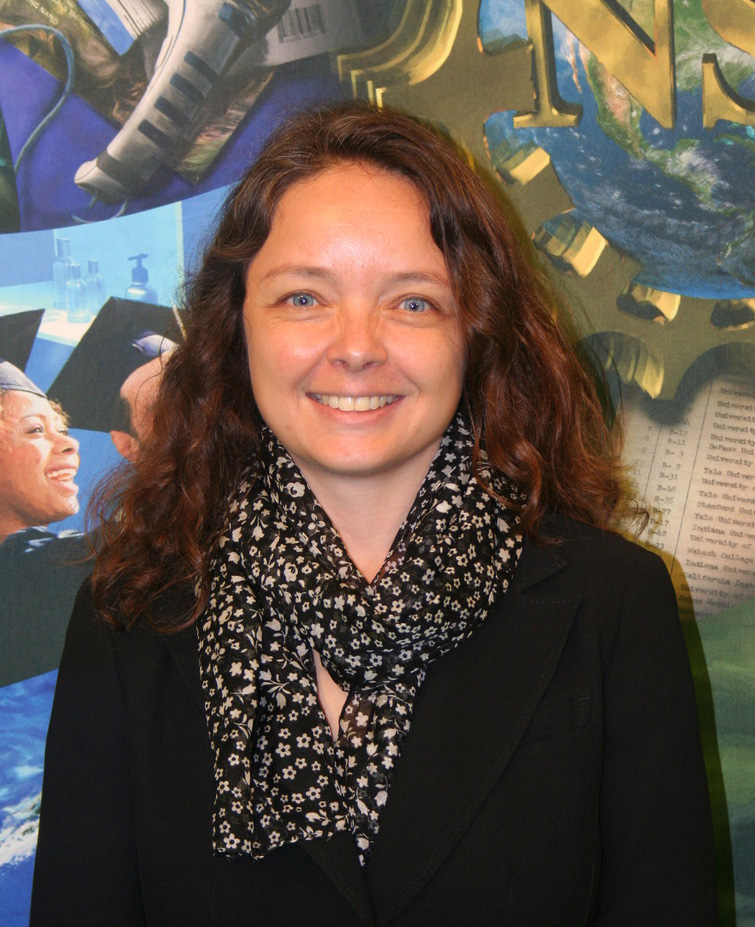
Judit Ungvári
Research and Innovation Officer
Institute for a Sustainable Earth
George Mason University
4400 University Drive, MSN 6D5
Fairfax, Virginia 22030
Dr. Ungvári is the co-lead of the Future Earth Research and Innovation portfolio and the Research and Innovation Officer at George Mason University’s Institute for a Sustainable Earth. She spent 2 years at the National Science Foundation where she was a AAAS Science & Technology Policy Fellow. She was working in the Geosciences directorate on various international and integrative activities facilitating transdisciplinary global change research. Judit is an ecologist by training, with expertise in avian biology in tropical habitats. She studied birds in the Peruvian Amazon region combining both laboratory- and field-based research and received her Ph.D. in Zoology with a certificate and concentration in Tropical Conservation and Development at the University of Florida. Her work on Amazonian forest bird communities related to the ecological mechanisms of habitat specialization, movement and dispersal between patchy habitats, combining metapopulation theory, landscape ecology, and population genetics. She also worked as a postdoctoral scholar at the Smithsonian Institute in Washington, DC, addressing avian conservation in coffee agroecosystems in Colombia. Judit is involved in local capacity building and community outreach both in the USA and Latin America and has mentored dozens of students to complete independent research projects in Peru, Colombia and Florida. Her interests include increasing diversity and broadening participation in the sciences, sustainability, science diplomacy, supporting open and reproducible research efforts, and communicating science to the public.
B.S. The Ohio State University
Ph.D. University of North Carolina at Chapel Hill
Class of 2026
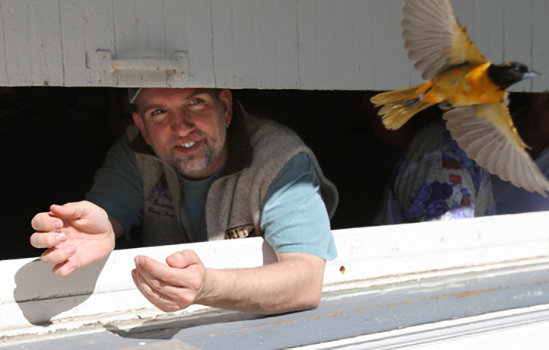
Mark Deutschlander
Professor
Biology
Hobart and William Smith Colleges
Dr. Mark Deutschlander is Professor of Biology at Hobart and William Smith Colleges in the Finger Lakes region of New York, where he teaches courses in physiology, behavior, environmental studies, and ornithology. He has also led semester abroad programs to Queensland, AUS, where he taught urban ecology.
Mark’s research focuses on migration, particular energetics, orientation, and navigation. He has published numerous papers on magnetic sensing and orientation, and he has worked on a variety of passerine species (Catharus thrushes, parulids, and sparrows) as well as non-avian species, such as the Eastern Red-spotted Newt, salmonids, and Siberian Hamsters. More recently, Mark has expanded his research program into the area of energetics and migration.
Mark is a certified trainer for the North American Banding Council, and he is currently the President of the Braddock Bay Bird Observatory, where he conducts some of his research. Mark is an Associate Editor for the Wilson Journal of Ornithology, a past Past-President (2017-2019) of the Wilson Ornithological Society, and a Fellow of the American Ornithological Society.
Ph.D. (Zoology, Neuroscience minor, and Animal Behavior certificate) Indiana University
B.S. (Biology) SUNY Geneseo

Allyson Jackson
Assistant Professor, Environmental Studies
Purchase College, SUNY
Natural Sciences Building, 735 Anderson Hill Road
Purchase, NY 10577
Dr. Jackson is an Assistant Professor of Environmental Studies at Purchase College (State University of New York). She works to give her students authentic field experiences that will carry them into environmental careers. She teaches General Ecology, Ornithology, Wildlife Toxicology, Biostatistics, Conservation Biology and Wildlife Ecology.
Her research currently focuses on the movement of emergent aquatic insect subsidies into riparian songbird food webs. These subsidies provide high quality nutrients early in the temperate breeding season but also can move aquatic contaminants, such as mercury, into the riparian food web. Recently, she has also started work to incorporate community science into her research program, by working with volunteers to collect insects in Acadia National Park.
B.S. (Biology) Juniata College
M.S. (Biology) College of William and Mary
Ph.D. (Wildlife Science) Oregon State University
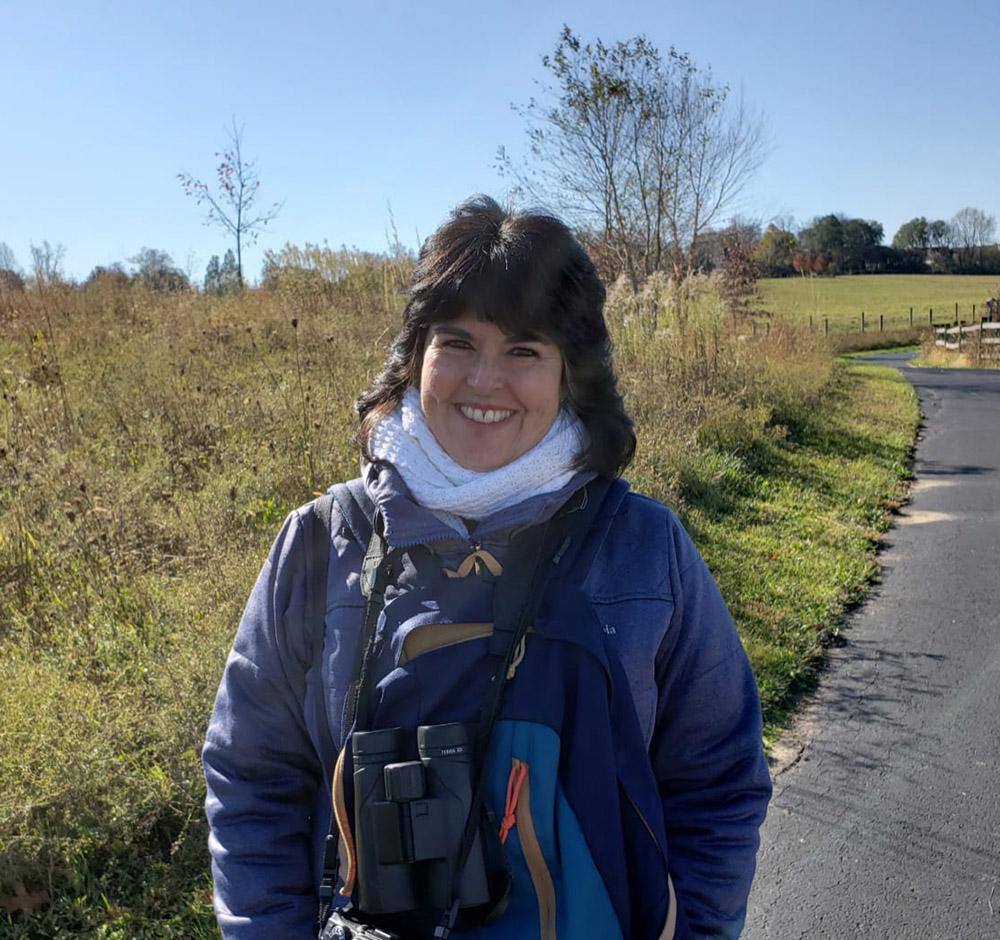
Maria Andreina Pacheco
Assistant Professor
Department of Biology
Institute for Genomics and Evolutionary Medicine (iGEM)
Temple University
Maria is an Assistant Professor (Research) in the Department of Biology/Institute for Genomics and Evolutionary Medicine (iGEM) at Temple University. Her academic and professional interests are avian ecophysiology and evolutionary biology and her research has focused on understanding the evolution of haemosporidian parasites and their hosts, especially in birds. She applies phylogenetic and molecular clock methods to understand host switches and the radiation of avian haemosporidian parasite groups. Maria is also interested in phylogenetics and the rate and mode of evolution of the mitochondrial genome in birds and their haemosporidian parasites.
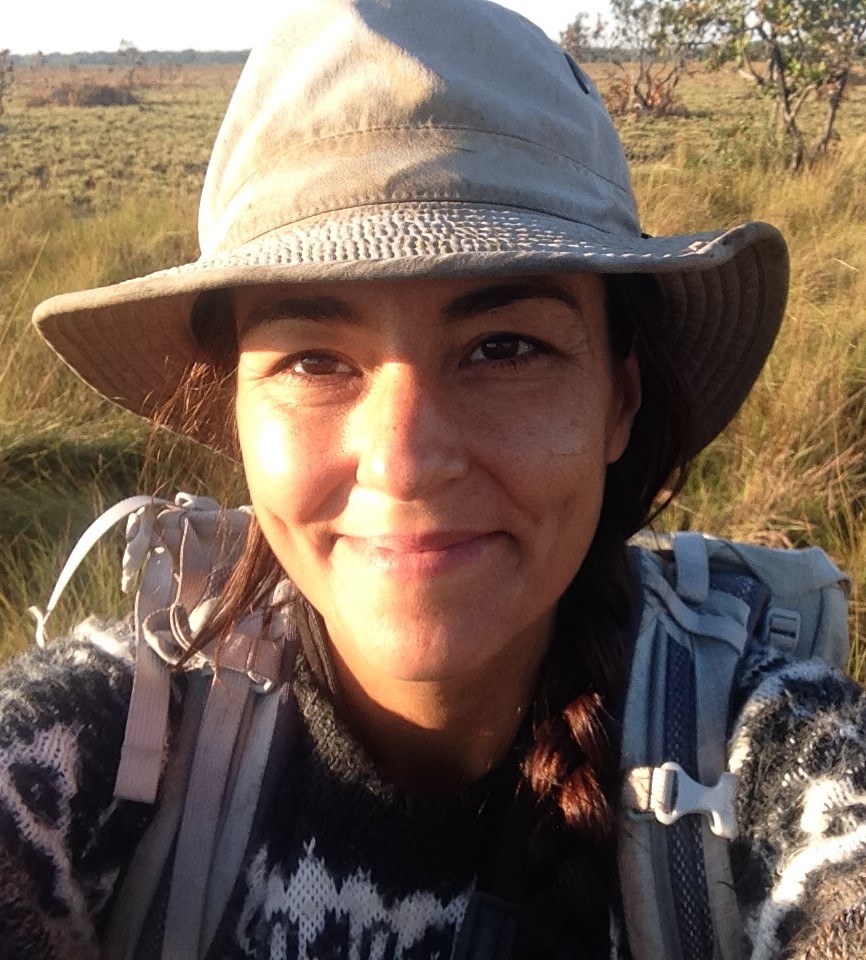
Jo Peacock
Assistant Professor
Restoration and Sustainable Land Management
School of Environment and Natural Resources
The Ohio State University
Jo Peacock is an Assistant Professor in the School of Environment and Natural Resources at The Ohio State University. She is currently developing a research program focused on investigating how we can better restore and manage forested, woody and savanna habitats within working and degraded landscapes to enhance biodiversity (primarily avian communities) and inform conservation and sustainable land-use that benefits wildlife. Her prior PhD research focused on understanding how ecological (flooding) and agricultural (intentional fire and grazing) disturbance influences habitats and avian communities across a savanna-grassland gradient in the Beni Savanna region of Northern Bolivia. Before that, Jo worked for several years as a Landscape Restoration Officer for the Royal Society for the Protection of Birds (RSPB) in Scotland. In this role, she managed a multi-partner landscape-scale conservation initiative that linked the restoration of native ecosystems and avian communities with integrated land management in working and protected landscapes. During her undergraduate Zoology degree, which she completed at Glasgow University in 2011, Jo ran multiple scientific expeditions to the Neotropics and has worked on setting up a diverse range of biodiversity and population monitoring projects in Bolivia and Ecuador in partnership with local NGOs and scientists. These have included studies considering the population size and habitat use of declining Neotropical savanna passerines and the development of protocols for long-term monitoring of the critically endangered Blue-throated Macaw.
B.S. (Zoology) University of Glasgow
Ph.D. (Environmental Science) The Ohio State University
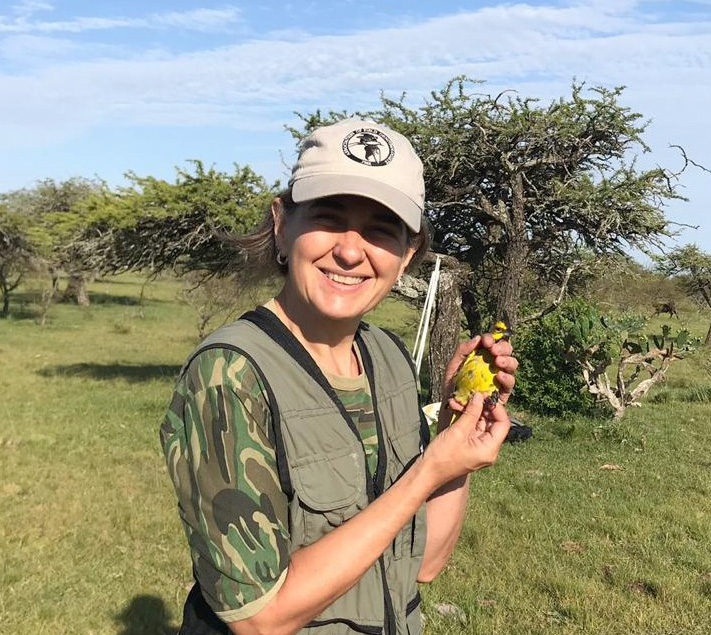
Carla Suertegaray Fontana
Carla is currently a researcher in South Brazil. She and her students/collaborators have been answering questions regarding Neotropical birds, their life histories, and ecological and conservation issues.
B.S. (Biological Sciences) PUCRS University
Ph.D. (Zoology) PUCRS University
Class of 2027
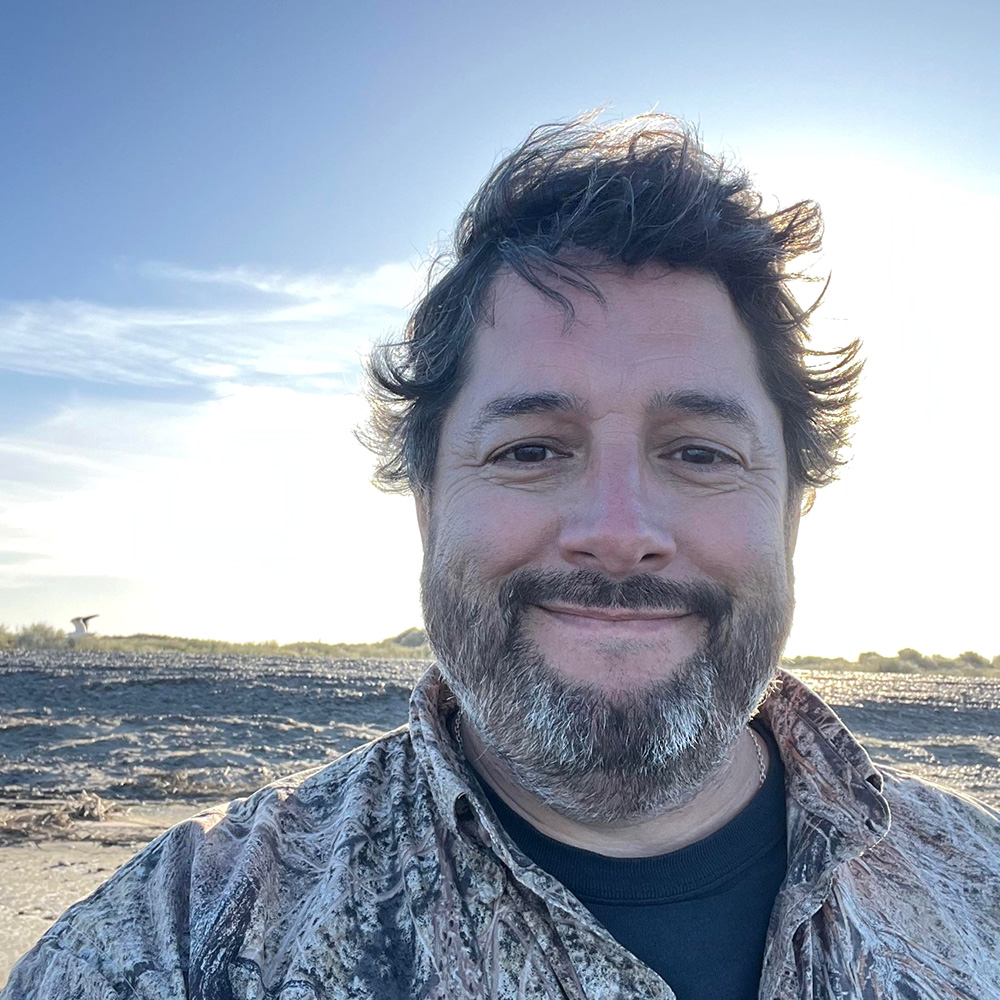
Igor Berkunsky
Investigador/Research Scientist
ECOSISTEMAS, UNCPBA-CONICET
Instituto Multidisciplinario sobre Ecosistemas y Desarrollo Sustentable
Universidad Nacional del Centro de la Provincia de Buenos Aires
Paraje Arroyo Seco s/n, Tandil (7000), Buenos Aires Province, Argentina
Igor is a research scientist at CONICET and a professor at Universidad Nacional del Centro de la Provincia de Buenos Aires and Universidad Nacional de La Plata. His research centers on developing conservation tools for threatened bird (and other) species in Southern South America. He is interested in increasing the reproductive output of grassland birds. His questions explore the interface between habitat use, predation ecology, nesting behavior, and breeding biology. He is studying threatened grassland birds, including the Pampas Meadowlark and the Hudson’s Canastero.
B.S. (Biological Sciences, Ecology) – Universidad Nacional de La Plata
Ph.D. (Ecology and Evolutionary Biology) – Universidad Nacional de La Plata

David Cerasale
Pacific Northwest Area Lead | Senior Vice President
WestLand Engineering & Environmental Services, Inc.
WestLand Resources, Inc.
Portland, OR 97219
David holds a Master of Science in Wildlife Biology from The University of Montana and a PhD in Ecology and Evolutionary Biology from Cornell University, and has 20 years of experience in the research and management of wild animal populations. David’s research centered on understanding the physiological mechanisms underlying the extreme endurance flights that avian migrants undertake and creating physiological tools to guide management decisions. Following his research career, David focused on providing technical and regulatory expertise to a variety of clients whose project require environmental review by federal, state, and local regulatory agencies. As an owner of an environmental and engineering consulting company, David has for over a decade helped project proponents across multiple markets, including federal and state agencies, non-profit environmental groups, solar power development, and the extractive industry, permit projects and comply with federal, state, and local environmental regulations. David is currently a Senior Vice President and Area Lead for the Northwest for WestLand Resources, Inc.
M.S. (Wildlife Biology) The University of Montana
Ph.D. (Ecology and Evolutionary Biology) Cornell University
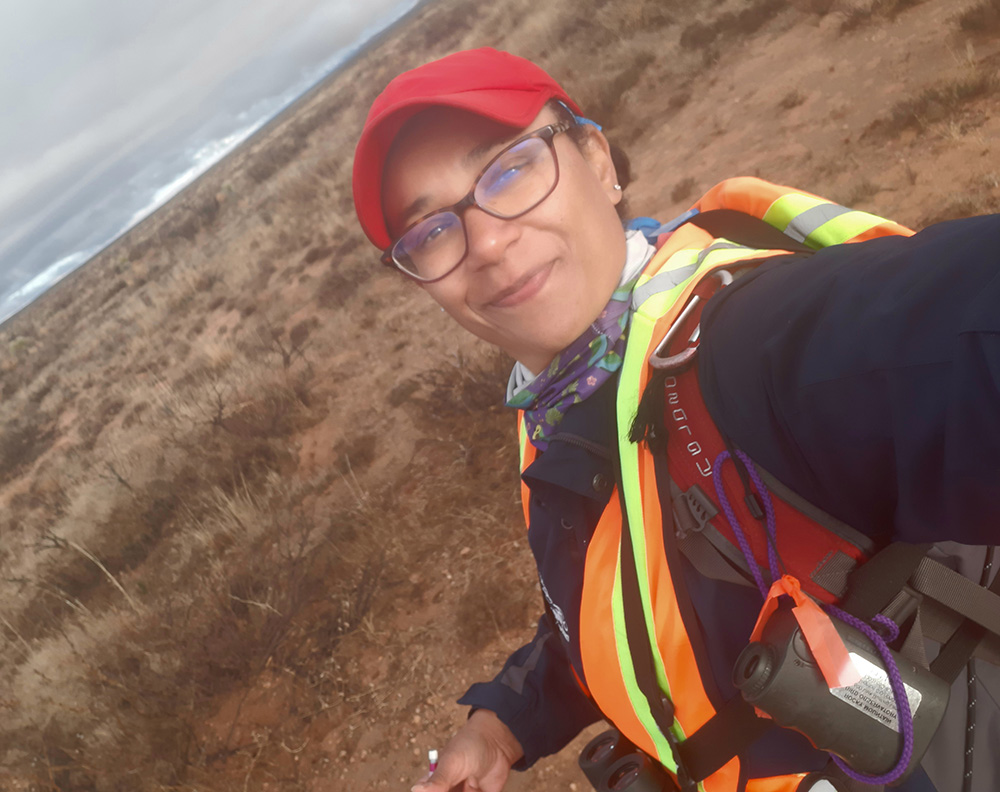
Natasza Fontaine
Natasza holds a Master of Science in Biology from Florida State University. Her thesis focused on how avian species richness relates to plant species composition and vegetation structure during non-breeding seasons. After completing her degree, Natasza worked as an avian field biologist in the Southeast and the Southwest and has volunteer experience in South America. Currently, she is a shorebird/seabird biologist for Audubon Florida, based in the Florida Panhandle. She is interested in understanding habitat associations for migratory species, bioacoustics, and bioacoustic monitoring. She is an avid avian recordist and a natural science illustrator. Additionally, she is a visiting biology professor at the Massachusetts College of Art and Design. Her course, Sound and Color, focuses on exploring the biodiversity of birds and plants through a creative lens.
B.A. (Visual Arts) – Norfolk State University
M.A. (Communications) – New York Institute of Technology
M.S. (Biological Sciences) – Florida State University

Jessica Hightower
University of Maine
Jessica is a current post-doctoral associate at the University of Maine where she is modeling spatially explicit population viability of Golden-winged Warblers across their current and predicted breeding range. Prior to working at the University of Maine, Jessica completed her dissertation at the University of Florida where her research focused on understanding how human land use impacts bird communities in Borneo. Jessica is broadly interested in using theory and empirical research to understand how humans impact their natural environment and using that knowledge to expand and improve conservation practices. As a life-long fan of birds, her research trends towards a focus on avian ecology and conservation, both in tropical and temperate regions.
B.S. (Environmental Science and Geography) University of Central Arkansas
M.S. (Biology) University of Central Florida
Ph.D. (Interdisciplinary Ecology) University of Florida

Cecilia Kopuchian
Researcher, Center of Applied Ecology (CECOAL)
Argentinean National Research Council (CONICET)
Ruta Provincial 5, km 2.5
Corrientes (3400)
Corrientes, Argentina
Cecilia is a research fellow at the Argentinean National Research Council (CONICET), working at the Center of Applied Ecology (CECOAL) in Corrientes (North-East Argentina). Her research interests include understanding the processes that shape population and species divergence in Neotropical birds, both to answer basic questions in evolutionary biology and to design effective conservation and management strategies. Her current research focuses on the role of the Paraná-Paraguay Rivers system as a geographic barrier for birds, and in conservation genetics of endangered species of grassland Neotropical birds.
B.S. (Biological Sciences) Universidad de Buenos Aires
Ph.D. (Ecology and Evolutionary Biology) Universidad de Buenos Aires
JFO Editorial Team
Editors-in-Chief
Mark Hauber, Rafael Rueda-Hernández.
Subject Editors
Daniel R. Ardia, Juan I. Areta, Travis L. DeVault, Jeffrey P. Hoover, Terri J. Maness, Ann E. McKellar, Abby N. Powell, Matthew Reudink, Scott A. Rush, Rachael Shaw, Jennifer Smith, Michal Šulc.
Spanish Translators
Juan Pablo Gomez, Gustavo Londoño, Raul A. Pérez-Rivera.
Editorial Assistance Program Coordinators
Daniel M. Brooks
Book Review Editor
Evan Jackson
Recent Past Presidents
Julie Jedlicka (2022-2024), Valentina Ferretti (2020-2022), Dan Ardia (2018-2020), Paul Rodewald (2016-2018), Reed Bowman (2014-2016), Kathryn Purcell (2012-2014), L. Scott Johnson (2010-2012), David N. Bonter (2008-2010), Cecilia Riley (2006-2008), Eugene Morton (2004-2006), Scott Sutcliffe (2002-2004), Jerry Jackson (2000-2002). For a more complete list of AFO’s past presidents, click HERE.
AFO Representatives for Other Organizations
Ornithological Council – David Aborn
North American Banding Council – Ian Ausprey and Luke DeGroote
Biodiversity Research Institute (mist-net sales) – Patrick Keenan
